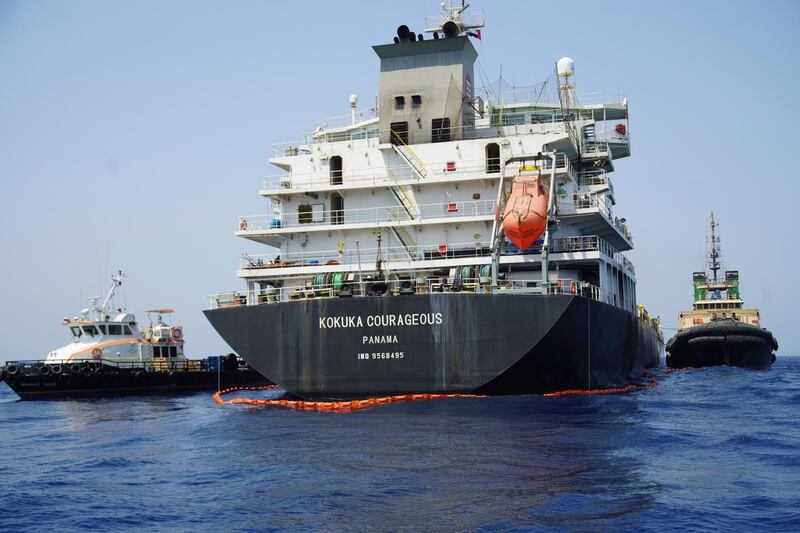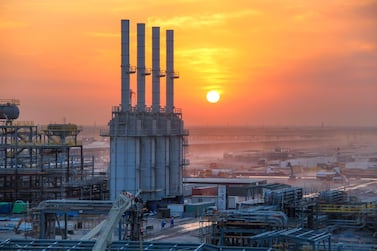Oil surged to a seven-week high as a gathering storm in the US, as well as bubbling tensions in the Middle East, where Tehran's alleged attempted seizure of a British tanker led to a rally.
Brent was trading at $67.43 per barrel, at 11:13am UAE time, as markets reacted positively to the pressure on US stockpiles.
Heavy rains in the US state of New Orleans, which is prone to cyclonic depressions in the summer, threatened to develop into a hurricane, cutting a third of output from the Gulf of Mexico.
US inventories, the target of supply restrictions by the Opec+ alliance led by Saudi Arabia and Russia, had already been on the slide, with rig count data by Baker Hughes last week revealing a decline in domestic installations. Inventory levels also fell to three-month lows, down by 9.5 million barrels last week, according to the US Energy Information Administration.
In the Middle East, tensions remained high as Iran’s attempted to make good on a threat to seize a British tanker in retaliation for the UK's capture this week of one of its vessels laden with crude off the coast of Gibraltar.
The UK's British Heritage oil tanker was "impeded" on its voyage through the Strait of Hormuz by Iranian vessels as it sailed past the coast of Oman, according to tanker data by Bloomberg.
The British defence ministry later stated that that its HMS Montrose was "forced to position herself between the Iranian vessels and British Heritage,” to allay the threat.
“Verbal warnings” were issued to the Iranian vessels, which then turned away, the statement added.
An earlier report by CNN had alleged that Iran’s Revolutionary Guard Corps, the military entity aligned with the country’s Supreme Leader who was recently sanctioned by the US, was behind the escalation.
However, the IRGC denied the allegations through Iran's Fars news agency, saying had they received a direct order for a seizure, they would have acted “fast, with determination and without hesitation within the geographic scope of its mission”.
The incident makes transit for oil tankers through the Strait of Hormuz, through which a third of the world’s seaborne crude passes, a challenging and expensive proposition for energy companies.
Shipping insurance rates have already rocketed and the US, which maintains its Fifth Fleet in the Gulf, and Bahrain said it was "building up a coalition" to man the Strait of Hormuz as well as the Bab Al Mandeb along the western side of the Arabian Peninsula.
Meanwhile, Bob Dudley, chief executive of BP, said the energy major was undertaking significant due diligence whilst transiting through the area.
"We’ve just got to be really careful about our ships. For those of you who don’t know, I think they’ve threatened to seize a British oil tanker somewhere, anywhere, so we’ve of course got to be careful about that," he told reporters in London.
Six tankers in the Middle East were attacked between May and June, suffering significant damage. The US pointed the finger at Iran, which denied the allegations.
Oil producers in the region are already looking for alternative supply routes, with Iraq, Opec’s second-largest producer, voicing concerns that it feared disruption to exports from its southern Basra terminal.








